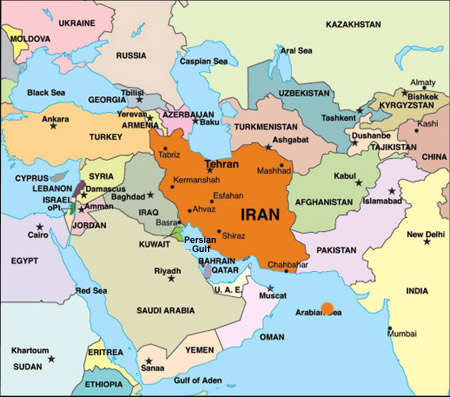WASHINGTON D.C.
An Iranian plead guilty Thursday to conspiring to purchase and ship various products, including aviation parts and supplies, from the U.S. to Iran without a license, according to officials.
 Mansour Moghtaderi Zadeh, 56, who had been living in Iran, admitted to one count of conspiracy to unlawfully export goods, technology and services to Iran without the required license and to defraud the U.S.
Mansour Moghtaderi Zadeh, 56, who had been living in Iran, admitted to one count of conspiracy to unlawfully export goods, technology and services to Iran without the required license and to defraud the U.S.
He is facing up nearly five years in prison along with a potential fine of $20,000 to $200,000.
Senior Judge Paul L. Friedman scheduled sentencing for Dec. 14.
“The prosecution of this case demonstrates that the United States will aggressively investigate and prosecute those who unlawfully export goods and technology for use in Iran,” said U.S. Attorney Channing D. Phillips. “Working with our law enforcement partners, we will use every tool at our disposal to enforce export laws.”
The maximum statutory sentence is prescribed by Congress and is provided here for informational purposes, as the sentencing of the defendant will be determined by the court based on the advisory Sentencing Guidelines and other statutory factors.
In plea documents filed today, Zadeh admitted that beginning in October 2005, Iranian companies requested that Zadeh through his company, Barsan Aero Chemicals, Ltd., get products, including a fiber optic video transmitter and receiver, and aviation course indicators.
This required a license from the Department of the Treasury’s Office of Foreign Assets Control, to be exported to Iran.
Members of the conspiracy arranged for the items to be sent from the U.S. to Iran, and Zadeh received a commission.
In March 2007, Zadeh and co-conspirators attempted to export metal sheets and rods that are used in the aviation manufacturing industry from the U.S. to Iran, without the required license, according to officials.
 Zadeh had arranged for his new corporation, Lavantia Ltd., to purchase the items, and used an alias in his communications.
Zadeh had arranged for his new corporation, Lavantia Ltd., to purchase the items, and used an alias in his communications.
In September 2007, the shipment was detained by the U.S. Department of Commerce pending certification of the end user.
In October 2007, the Department of Commerce issued a Temporary Denial Order against Lavantia and Zadeh (under his alias).
Authorities maintain that the Denial Order prohibited Lavantia and Zadeh from participating in any way in any transaction involving any commodity exported from the U.S.
Zadeh and other conspirators exported and attempted to export numerous materials from the U.S., including resin, sealant, paint, pneumatic grease, film adhesive and polyurethane coating and thinner.
Their conduct after the Denial Order was issued involved more than $69,000 of exported goods.
“Disrupting and dismantling the sale of controlled items, especially those with military value, to foreign powers is a critical federal law enforcement mission, and is one in which HSI has a long history of excellence,” said Special Agent in Charge Matthew J. Etre. “HSI will continue to track down those who attempt to profit by the illegal sale and export of our military technologies.”
*In announcing the plea, Acting Assistant Attorney General McCord, U.S. Attorney Phillips, Special Agent in Charge Matthew J. Etre and Special Agent in Charge Imbrogna commended the work of the Special Agents who investigated the case.
They also acknowledged the efforts of those who worked on the case from the U.S. Attorney’s Office, including Paralegal Specialist Jorge Casillas, and Assistant U.S. Attorneys Frederick W. Yette and Jeffrey Pearlman of the District of Columbia, who prosecuted the case. Finally, they expressed appreciation for the work of Trial Attorney Thea D. R. Kendler of the National Security Division’s Counterintelligence and Export Control Section.

